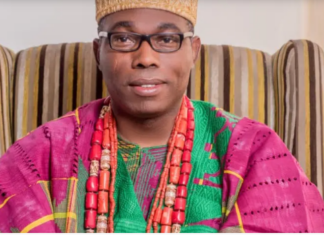On Thursday, September 18, the people of Scotland will hold a referendum to decide on their continued stay in the United Kingdom. This is coming 307 years after the act of ascension, which bonded Scotland to England.
A Momentous Decision
Thursday’s decision will be of seminal importance which echo will resonate very far from the shores of the United Kingdom. Whichever way it goes, it will affect the thinking, thoughts and processes of every multi-ethnic state. For Africa it will be important. The continent in general is still reeling from the effect of what the historian, Basil Davidson, described as the black man’s burden, ‘the curse of the nation state’. Nigeria which has to decide on an option of using a referendum to rectify the decisions of the national dialogue had better pay notice.
Critical here is that for Nigeria, there is already a precedent. A plebiscite was held to decide whether or not Adamawa province should continue to be part of Nigeria. The people of that province duly saw their self-determination as residing elsewhere and joined Cameroon. It has to be noted here that the odious anti-democratic self-denial of ‘no-go areas’ entered the lexicon within the military mindset.
Re-examining Westphalia
This mindset must now be re-ordered as a consequence of first of all, the new post-military democracy and the wind of change blowing all over the world. Critically, there is now a fundamental re-examination of the 1648 Treaty of Westphalia. The creation of sovereign nation-states and the coercion of, at times, unwilling nationalities into a single entity is now being questioned.
Whatever decision the Scottish people take on Thursday will not roll back the tide. In Spain, the odds are that Catalonia will go on, with or without the permission of the Spanish central authorities with their planned referendum on November 24. In Italy, the Lombardi league in northern Italy will possibly put a referendum once more on the agenda. The referendum has ignited a momentous debate which will continue to reverberate for a generation.
Globalisation and the National Question
It could not have been otherwise. For the economic policy of protection and directed public credit has given way to today’s globalisation. This is why paradoxically in an era of global markets, nationalism has failed to disappear as a former British Prime Minister, Gordon Brown, stated last week. This trend did not start recently. As Brown pointed out in an article in the New York Times last week, the far sighted had long ago discerned this trend.
This is why for example as far back as 1962, United States President John F. Kennedy had advocated for a global declaration of interdependence to complement the United States declaration of independence of 1776. This explains, as Brown pointed out, why there is an ongoing campaign from Scotland and Catalonia to Flanders and Lombardy for the rebirth of small independent states.
The rational is that these smaller independent states have greater adaptability and cultural homogeneity which, it is argued, will make them success stories and ‘paragons of social justice.’
Nigeria’s Option
This leitmotif is at the heart of Nigeria’s national dilemma. With the dismal performance of the country’s post-colonial state, the temptation is very high to accept the argument that ‘small is beautiful.’ The antidote needed is clear if we want to maintain the union. This is to state the obvious a return to a real federal state devolving powers to the regions.
This is also common sense to put it for the umpteenth time; the empirical evidence from the performance of the first republic is incontrovertible. A proper federal set up under the 1960 independence constitution and the 1963 republican constitution delivered higher real economic development (as opposed to ‘growth’ without development) and a better standard of living. We ignore these facts at our peril.
With the new reality, for us in Nigeria, the era of denial is over. As far as the resolutions of the national dialogue are concerned, a referendum can no longer be wished away. A people have a right to be governed according to their expressed wish within what they perceive as their collective interest.
The manner in which the referendum in Scotland will be concluded come Thursday is instructive. Sixteen year olds will have a right to vote. There is a clear unfettered free choice. The debate had been vigorous, often thoughtful and no holds have been barred.
The Way Out
For us the road to be taken is clear. In view of the wind of change, real fiscal powers must be devolved from the centre. We have to go back to the tenor and the spirit of federalism. In this way, a critical mass will be achieved to combat poverty, squalor, perennial underachievement and disease. It is also the only way to slay the demon of the Nigeria paradox. This as often stated is the bizarre situation in which society gets poorer even as the national coffers get fuller.
This position is untenable as well as unsustainable. The alternative is horrendous. It will entail continuing strife, mounting poverty and mass unemployment located in a demographic time -bomb as well as continuing threats to the territorial integrity of the state, the erosion of societal cohesion and the end of social solidarity. This placed within the backdrop of our recently concluded national dialogue should provide an opportunity for a profound thinking and a change of course. There is no alternative.













